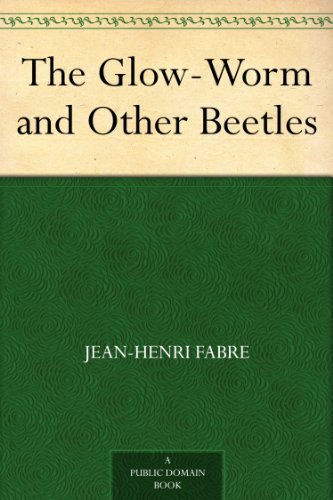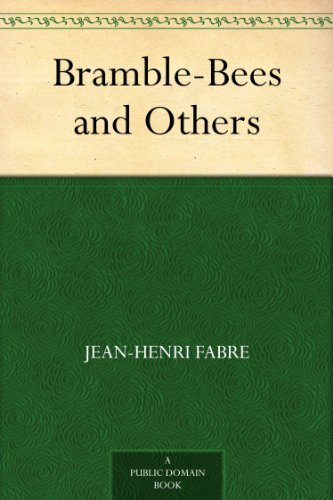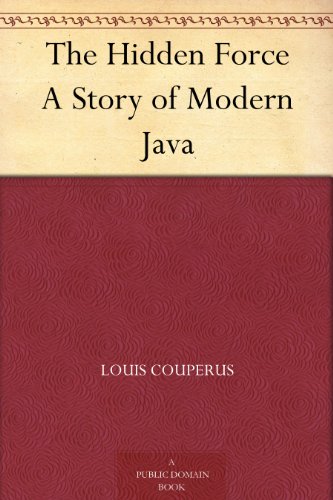-
The Phantom of the Opera
Gaston Leroux, Alexander Teixeira de Mattos
eBook (Ktoczyta.pl, March 14, 2018)The fascinating story about a young Swede Christine Daaé. Her father, a famous musician, dies, and she is brought up in the Paris Opera House. After a while in the opera house, she begins to hear a voice that, in the end, teaches her how to sing beautifully. The ghost is in love with the main character and is jealous of her friend, but it can only spell disaster.
-
The Glow-Worm and Other Beetles
Jean-Henri Fabre, Alexander Teixeira de Mattos
eBookThis book was converted from its physical edition to the digital format by a community of volunteers. You may find it for free on the web. Purchase of the Kindle edition includes wireless delivery.
-
The Life of the Spider
Jean-Henri Fabre, Alexander Teixeira de Mattos
eBookThis book was converted from its physical edition to the digital format by a community of volunteers. You may find it for free on the web. Purchase of the Kindle edition includes wireless delivery.
-
Bramble-Bees and Others
Jean-Henri Fabre, Alexander Teixeira de Mattos
eBookThis book was converted from its physical edition to the digital format by a community of volunteers. You may find it for free on the web. Purchase of the Kindle edition includes wireless delivery.
-
The Blue Bird: a Fairy Play in Six Acts
Maurice Maeterlinck, Alexander Teixeira de Mattos
eBookThis book was converted from its physical edition to the digital format by a community of volunteers. You may find it for free on the web. Purchase of the Kindle edition includes wireless delivery.
-
The Hidden Force A Story of Modern Java
Louis Couperus, Alexander Teixeira de Mattos
eBook (, March 30, 2011)This book was converted from its physical edition to the digital format by a community of volunteers. You may find it for free on the web. Purchase of the Kindle edition includes wireless delivery.
-
The Later Life
Louis Couperus, Alexander Teixeira de Mattos
eBook (, Oct. 9, 2011)This book was converted from its physical edition to the digital format by a community of volunteers. You may find it for free on the web. Purchase of the Kindle edition includes wireless delivery.
-
The Phantom of the Opera
Gaston Leroux, Alexander Teixeira de Mattos
Flexibound (Canterbury Classics, April 10, 2018)The classic story of a dangerous love triangle set in an 1890s Paris opera house.Rumored to be haunted, the Palais Garnier opera house in nineteenth-century Paris is the setting for this story of a dangerous love triangle involving a young Swedish soprano, her mysterious “Phantom” tutor, and her childhood friend. When Carlotta, the lead soprano, takes ill and Christine Daaé’s understudy performance is a rousing success, Vicomte Raoul de Chagny falls in love with Christine. Meanwhile, her tutor, “the Angel of Music,” whom she believes has been sent by her deceased father, is also coveting Christine’s affections. But the Angel is no phantom as everyone believes, and his fears of Christine’s rejection due to his masked disfigurement prompts him to abduct her and extract a promise of marriage born of wild jealousy. This latest addition to the Word Cloud Classic series will have you burning the candles low to reach the dark, gothic ending.
-
The Phantom of the Opera
Gaston Leroux, Alexander Teixeira de Mattos
Paperback (CreateSpace Independent Publishing Platform, Aug. 6, 2017)The novel is partly inspired by historical events at the Paris Opera during the nineteenth century and an apocryphal tale concerning the use of a former ballet pupil's skeleton in Carl Maria von Weber's 1841 production of Der Freischütz. It has been successfully adapted into various stage and film adaptations, most notable of which are the 1925 film depiction featuring Lon Chaney, and Andrew Lloyd Webber's 1986 musical. W
W
-
The Memoirs of Paul Kruger: Four Times President of the South African Republic
Paul Kruger, Alexander Teixeira de Mattos
eBook“The redoubtable and indomitable Kruger emerges with his individuality unimpaired, his rugged style unspoiled, his faith in his own cause unshaken ... a true and striking autobiography ... an important history.” - The Literary WorldAmong the autobiographies published in 1902, the first place must be given to “The Memoirs of Paul Krüger, Told by Himself.” Kruger represented the Boer ideal of a Chosen Person appointed to govern a Chosen People. Kruger's passionate invective will find an echo in many a heart. Paul" Kruger (1825 – 1904) was one of the dominant political and military figures in 19th-century South Africa, and President of the South African Republic (or Transvaal) from 1883 to 1900. Nicknamed Oom Paul he came to international prominence as the face of the Boer cause—that of the Transvaal and its neighbour the Orange Free State—against Britain during the Second Boer War of 1899–1902. He has been called a personification of Afrikanerdom, and remains a controversial and divisive figure; admirers venerate him as a tragic folk hero, while critics view him as the obstinate guardian of an unjust cause.His memoir was generally well received at the time of its publication:“The memoirs afford very interesting reading and throw considerable light on what may be styled the Boer side of the story.” - The Indian Review“It has the interest and value that always attaches to a record of things by the man who saw and did them.” - The Bookman“As the story of a remarkable life and the revelation of a powerful personality it is entertaining and instructive .” - The Speaker, the Liberal ReviewBorn an Afrikander more than ten years before tho Great Trek in 1825, he learned the dreadful sweetness of property held in insecurity, and of civilization on the borders of a wilderness where a man might chance to be skinned alive. Cowherd, hunter, warrior, statesman, a burly Ulysses conferring alone with angry cannibals in their mountain caves, crossing the ocean to parley with the wisest and soapiest of Englishmen and Europeans, this Boer, disdainful of pocket-handkerchiefs, with the long, broad nose and fringed chin and the thumbless left hand, was more than Admirable Crichton to his fellow republicans. As a patriot he was marvellously patient and single-minded. The reverence for law which made him as a young man submit to be thrashed after a rhinoceros hunt because he had agreed to be thrashed if he was reckless, grew in him. Perhaps the most impressive feature of Mr. Kruger's memoirs is his unfailing belief, from the first knowledge he obtained of the British nation, that England coveted the territory of the burghers and would stick at nothing to obtain it. His lion hunts, his Kafir wars, the part he played in the internal disputes of Church and State in his own country, his longdrawn resistance to foreign designs, all these helped to harden a temperament naturally domineering. When it was the custom to deny this old man any single virtue, and ladies made little models of his features into pincushions, Mr. Kruger, who killed five lions single-handed, was taunted with his cowardice by Cockney journalists who had never in their lives seen any animal more formidable than a London bus horse.Whatever may be our opinions as to the justice of the Boer cause, we cannot wonder, after reading this defense of his position, based on documentary evidence, at the support that President Krüger received from his own people, nor can we despise the patriotic motives that inspired their heroic resistance to the British power.
-
The Bluebird chooses: Being the story of Maurice Maeterlinck's Play, "The Betrothal, told for children
Alexander Teixeira de Mattos
Hardcover (Dodd, Mead & Co, March 15, 1926)pp. 2 159. Tipped in colour plates
-
The Life of the Spider
Jean-Henri Fabre, Alexander Teixeira de Mattos
Paperback (Independently published, June 30, 2019)The Life of the Spider is a volume in Jean-Henri Fabre's "Souvenirs Entomologiques", in which he shares fifty years of careful observation. He re-acquaints us with the most everyday insects, inspiring a new interest, awareness and understanding in the reader. This volume concerns spiders.